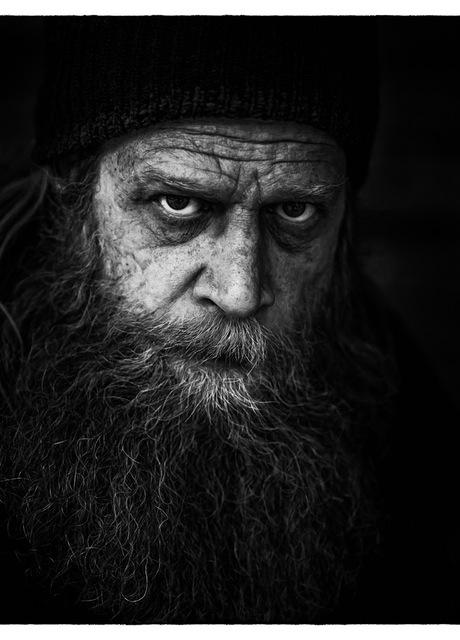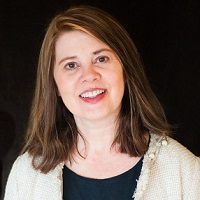
When I was a seminary student, I was given a choice: write a paper or be homeless for a weekend. I opted to be homeless. Two other men in the class signed up, and they became my big brothers. It was a great experience to have them looking out for me. I am thankful for what I learned and how I grew.
For this experiential learning, it was against the rules to rely on friends or family for food or money. We could, however, get a ride downtown and back. In addition, we had to look the part by getting used clothes. We carried $1.50—nothing more, no cards.
This experiment occurred in Louisville, Kentucky. We ate and slept at shelters. During the night hours, I was separated from my friends due to the shelter rules. The scariest part of being separated from them was being completely alone with strangers.
When I went to my bunk that night, a woman approached me and said I shouldn’t fall asleep because people would come in during the night and shove needles down my arms. I was scared. All perspective went out the window. That night, I lay on the cot, trying not to blink. Thankfully, no one tried to shoot anything into my arm, nor did anyone approach me about drugs or coerce me into anything.
During the day, there was nothing to do but walk around and go to the day center. At the center, there were probably 100-150 people playing checkers, with others sitting quietly. There were more people than we wanted to deal with, so we left.
Along the way, we made a friend. This man, who was homeless, showed us Louisville in style. We went to the Seelbach, a five star hotel, and sat in the lobby and talked. We pretended we were having tea with the Queen. No one came to ask us to leave. I was surprised but glad.
At the end of our visit, we told our friend the truth about our situation. We all felt ashamed for lying to him. He had reached out to us and we had lied to him.
Over the course of the weekend, thoughts of my self-worth began spiraling downward. They went from, “This doesn’t feel good,” to “I feel miserable,” to “I am miserable,” to “I am not worth anything.” My friends and I didn’t talk to each other much, except to exchange a few comments about how disappointed and sad we felt.
I began to feel ashamed of myself, and hoped I didn’t see anyone I knew.
~
To get the most learning from this experience, I’ve asked myself the following questions that Brené Brown mentions in her book, Rising Strong.
Question #1: What more do/did I need to learn about this situation? What do I know objectively? What assumptions am I making?
Assumption #1: All homeless people are dangerous in some way: addicted to drugs, prostitutes, pimps, illiterate, and/or mentally ill.
The National Law Center on Homelessness and Poverty researched causes of homeless. The following are statistics of their report from 2012-2014:
>> For women in particular, domestic violence is a leading cause of homelessness.
>> The top causes of homelessness among families were lack of affordable housing, unemployment, poverty, and low wages, in that order.
>> The top four causes of homelessness among unaccompanied individuals were lack of affordable housing, unemployment, poverty, mental illness and the lack of needed services (also in that order).
Substance abuse and mental illness were the lowest of the causes for homelessness. According to a new census report that utilizes a fairly recent innovation known as the Supplemental Poverty Measure, more than 10.6 million Americans are in poverty or are homeless.
Daily life is quite different for those experiencing homelessness. Let’s take, for example, health insurance for a person struggling financially. The quality of the health insurance determines how high the deductible will be. If someone can only afford the cheapest insurance, the deductible will be high. If a person or family can’t pay the deductible, the insurance won’t pay their hospital bills. For other plans, insurance will only pay a percentage of the overall cost, and yet for others, they can’t even afford insurance, at all.
This reality is probably what prompted Bernie Sanders (and others) to say health care should not be a privilege, but a right for all. He has also said:
We have to develop a strong economic message, which says every American is entitled to health care through a national health care program. And, we’re not going to allow these large corporations to push through trade agreements which allow them to throw Americans out on the street and run to China.
When someone is struggling financially, has a catastrophic illness, and becomes homeless, we are all affected by the devastation. We run into the homeless on the streets, and are faced with dealing with the internal struggle of “What should I do to help?” If we allow ourselves, we can feel some of their pain.
Assumption #2: All homeless people are confused, selfish, and unable to connect.
The man who befriended us expressed compassion toward us. As difficult as his life was, he reached out to us. His kindness quenched the need I had in that moment to be cared about and heard. While I don’t remember his name, I will always remember how he reached out to us and genuinely seemed to enjoy our company. It was mutual for my two friends, as well.
While many of the homeless experience feelings of sadness, some of them—maybe many of them—are capable of expressing compassion.
Question #2: What more do I need to learn and understand about the other people in the story?
Each homeless person I saw and met struggled with getting their basic needs met. Physical needs include food, water, clothes, and shelter. However, people have emotional needs as well. Emotional needs include:
>> Connection: acceptance, affection, appreciation, belonging, closeness, companionship, love, respect, and self-respect, to know and be known, to see and be seen, to understand and be understood.
>> Honesty: authenticity, integrity, and presence.
>> Play: joy and humor.
>> Peace: beauty, communion, ease, equality, harmony, inspiration, and order.
>> Autonomy: choice, freedom, independence, space, and spontaneity.
>> Meaning: awareness, celebration of life, challenge, clarity, competence, contribution, creativity, growth, hope, purpose, understanding. A feeling that one matters.
The frowns, the seriousness, the sad eyes, and the quietness all convey pain. I briefly experienced deprivation, and it hurt, both physically and emotionally. While we all have differences—looks, personalities, values, finances, experiences, religion—our spirit is the same.
No one is better than another simply because they are part of the majority. Likewise, no one is less than because they are not in the majority. This principle applies to education, race, culture, sexual differences, learning differences, and anything that is not the norm.
We are all equal. When one of us hurts, it affects all of us. Thus, we are all inextricably connected. When I see someone suffering, I see myself.
As Margaret Mead said, “Always remember that you are absolutely unique. Just like everyone else.”
We are all the same and we all affect each other.
Question #3: What more do I need to learn and understand about myself? What’s underneath my response? What am I really feeling? What part did I play?
When I see someone who is homeless, I experience sadness but also fear. I think some of that fear is the worry that I could end up homeless, too. It is an awkwardness that is difficult to deal with, similar to death. It’s easier to avoid it.
I feel compassion toward those who are suffering, yet I struggle to help. What good is the compassion, if I don’t reach out and make a difference? What is going on under the tightness in my belly and the tension in my chest?
I think part of it is that I feel helpless to help them. It reminds me of times when I’ve felt helpless and didn’t know how to deal with it. Seeing the enormity of the issues a homeless person faces has felt overwhelming for me. That “monkey chatter” in my head starts saying, “There’s no point of helping, there’s too much to do. You won’t be able to make a difference.”
But I remember times in high school when I felt overwhelmed and a janitor, Pete, listened to me. I would go into the boiler room and sit during lunch, because I couldn’t bear to go into the cafeteria. All the people, the judgments, the social groups, were overwhelming for me. However, Pete would never judge me or ask me, “Why?” He’d just tell me stories and allow me to stay. In fact, it was the one time of the day I enjoyed, because I could relax. That experience has stayed with me all these years.
The things I have are all impermanent. I’ve sold clothes, gadgets, appliances, and houses due to moving or needing replacement from age. Looking at the things I own, I can only think of pictures that I have kept for years. How often I have gotten a thrill from purchasing something, but the happiness left within a few days! And yet, I end up buying more things as time goes along in attempt to feel that fleeting happiness.
But I am going to challenge myself to put less importance on things and more importance on people. While serving the homeless may not be for everyone, there is something we all can do somewhere to meet a need.
Let’s go outside of our comfort zones and make a difference, like someone did for us.
Wishing you compassion on your journey.
~
Author: Catherine Oliphant
Image: Pexels
Editor: Callie Rushton


 Share on bsky
Share on bsky




Read 1 comment and reply